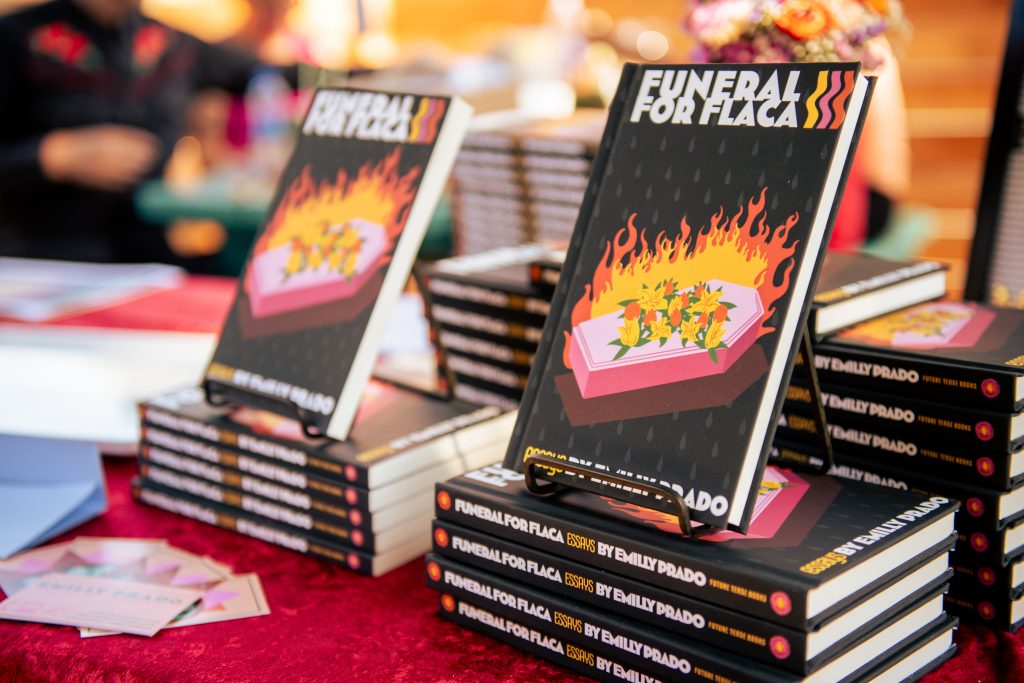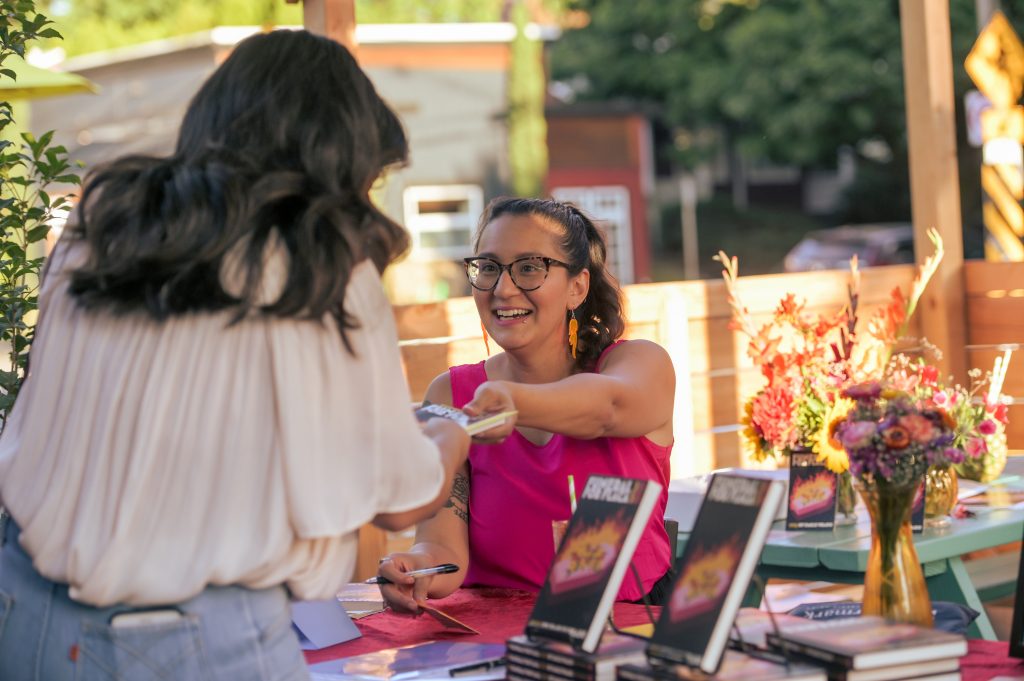Literary Arts – Emilly Prado “Funeral For Flaca”

Funeral for Flaca, is a poignant collection of personal essays and book debut of Portland-based writer, educator, and DJ Emilly Prado. The essays trace her life from a 1990’s childhood in the suburbs of the Bay Area to her move up to Portland, OR in 2008 and into the present. This coming-of-age memoir is part essay, part zine, and part playlist: including a link to an online mix tape and song names for essay titles.
Funeral for Flaca grapples with complex themes such as growing up Chicana in a mostly-white suburb and the search for one’s true self within labels, subcultures and family identity. While building suspense through the narrative, Prado remains down-to-earth, and relatable.
Funeral for Flaca is available from Future Tense Books. Prado is currently out on tour supporting her book. The tour culminated here in Portland on September 25th. Be sure to check out more events and classes with Emilly Prado following the tour HERE.

ELEVEN: Do you have a specific process when you write about place?
Emily Prado: I often start with specific memories or moments, a feeling, or an interaction. The place component, description, and scenes come later. I have a tendency to write with a journalistic sense and zoom through action. It’s in the revision process that I slow down and flesh out particular moods or places. Sometimes I use Google street view or old photos when memory alone doesn’t serve me.
11: Besides writing and music, are there other things you turn to in order to express yourself?
EP: Writing is the place where I make sense of how I’m feeling. Music is what I turn to when I’m trying to make sense of things. If I’m upset or going through a breakup, I’ll turn to music to navigate for a sense of reflection, and also to help me unlock things I’m not able to articulate. Dancing is a release even if it’s not verbal—it’s more the physicality of it. Writing requires a certain mental state that isn’t always accessible. When I’m not in the right headspace to write, I sometimes need distraction. That’s how I can process and be present for other things in my life.
11: Could you talk about your involvement with the Independent Publishing Resource Center (IPRC) here in Portland?
EP: I got my undergraduate degree from Portland State in education and social work. I became interested in writing as an intern at Bitch Media. After doing journalism, I started taking writing workshops at the IPRC, Literary Arts, The Attic, and traveling to non-local workshops. Eventually, I wanted something more concentrated. I enrolled in the prose certificate program [at IPRC]. By the end of the program I’d produced a chapbook that became the foundation for Funeral for Flaca. The program was a space where I felt really supported creatively and didn’t feel so constricted about what a book needed to be.

11: What is your experience with zines?
EP: I started making zines in the Bay Area when I was seventeen or eighteen because I wanted to teach zine-making to middle school kids. I also made them for fun here and there. I’ve always been interested in self publishing. I’m teaching the prose portfolio program at IPRC now. There is something so freeing about self publishing. Being a writer is different from being a traditionally published author. You don’t have to be published to be a writer. Separating those is really important.
11: Could you speak about the confessional quality of your essays?
EP: When I was younger, I was interested in reading things that felt real and honest. I had a hard time understanding fiction. Now I understand that there is a lot of truth in fiction. I wanted to write something that I, as a thirteen year old, would have been interested in reading. That’s why I’m interested in personal narrative. There’s this sense of hope inherently tied into something when you know the author is on the other side and has made it through whatever they’re writing about.
11: Is there anything you’ve found later in life that you wish you would have read when you were thirteen?
EP: Music was always what I was drawn to and where I felt most seen. There are so many Latina and Black women writers that I didn’t know about, like Sandra Cisneros and Julia Alvarez. bell hooks is someone I’ve read quite a bit as an adult.
11: Besides teaching at the IPRC and your book tour, do you have any other educational things coming up?
EP: Oh yeah—I’m on the roster for the writers in the schools this year, so I may be teaching again in the Portland Metro area. I’m always scheming up workshops and collaborations. I’m particularly interested in sharing what it was like to plan a book tour, helping people who are debut authors. There are a lot of resources and steps I wish I would have known about earlier. I’ve equated publishing a book with trying to fly a plane: you have a manual but a lot of pages are missing. Then you realize the whole “landing” part of the book is missing. That’s how it feels. I’d love to fill in some of those gaps through workshops.




